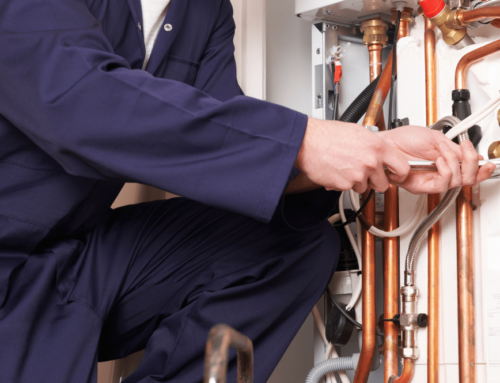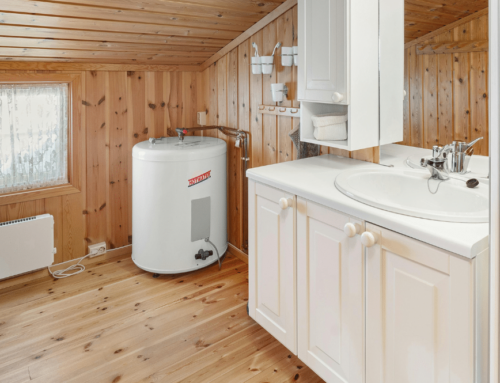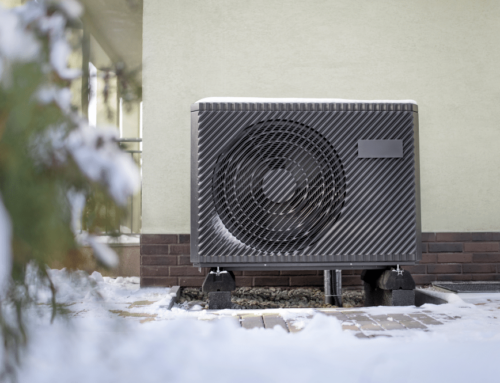Understanding the Differences Between the Grundfos 15-55 UPC and 15-55 ECM Motors in Heating and Hot Water Producing Boilers
When it comes to maintaining the efficiency and reliability of your heating and hot water system, the pump plays a crucial role. Grundfos is a leading manufacturer known for its high-quality circulator pumps, and two models often discussed in the context of heating systems are the Grundfos 15-55 UPC and the 15-55 ECM motors. But what exactly sets these two pumps apart, and how do they impact your heating and hot water production? Let’s explore the key differences between these two models and how each can affect the performance of your system.
What Are the Grundfos 15-55 UPC and 15-55 ECM Motors?
Both the Grundfos 15-55 UPC and the 15-55 ECM are circulator pumps designed to move hot water through heating systems and domestic hot water boilers. They are both compact, reliable pumps often used in residential applications. However, the main difference lies in the motor technology each uses, which affects their energy efficiency, operation, and overall performance.
- Motor Type: Traditional UPC vs. Advanced ECM
- Grundfos 15-55 UPC:
- The UPC (Universal Pump Controller) motor is a standard motor that operates at a fixed speed. This means that once the pump is turned on, it runs at full capacity, constantly circulating water through the heating system without any automatic adjustment for changing conditions. The speed and power of the motor remain constant, regardless of the system’s needs.
- Grundfos 15-55 ECM:
- The ECM (Electronically Commutated Motor) is a more advanced motor technology. Unlike the UPC’s fixed-speed motor, the ECM motor is capable of adjusting its speed based on the system’s demand. This allows for more precise control over the pump’s operation, adjusting the flow rate and energy consumption in real-time, depending on heating demand and temperature conditions. ECM motors are much more energy-efficient because they use less power to adjust the speed and meet system needs.
- Energy Efficiency
- Grundfos 15-55 UPC:
- Since the UPC motor runs at a constant speed, it uses a consistent amount of energy, regardless of how much heat or hot water is required. While this can work well in some basic heating systems, it can lead to higher energy consumption, especially in systems where heating demands fluctuate throughout the day or year.
- Grundfos 15-55 ECM:
- The ECM motor is designed to be far more energy-efficient than the UPC. By adjusting its speed based on the demand, it uses only the necessary amount of energy. This results in significant energy savings over time, especially in systems that require varying amounts of heating or hot water, making it a great choice for modern, high-efficiency homes or heating systems.
- Performance and System Compatibility
- Grundfos 15-55 UPC:
- This motor is a more basic option and may be ideal for simpler, more traditional heating systems where precise control and energy efficiency are less of a priority. It provides steady, consistent performance, but it may not be as adaptable to systems that have varying load conditions or require fine-tuned control.
- Grundfos 15-55 ECM:
- The ECM motor is ideal for systems that require variable flow rates, such as modern heating systems that include zoning or modulating boilers. The ECM motor provides more consistent temperature control and can improve the overall comfort in your home by maintaining a more stable heating environment. It also allows the system to adjust to changing demands, making it a better fit for newer, energy-efficient homes and systems.
- Cost Considerations
- Grundfos 15-55 UPC:
- Because the UPC motor is a more basic, older technology, it tends to be less expensive upfront. If you’re working within a budget or are upgrading an older system that doesn’t require variable-speed pumping, the Grundfos 15-55 UPC might be a cost-effective solution.
- Grundfos 15-55 ECM:
- The ECM motor is generally more expensive upfront due to the advanced technology it incorporates. However, the additional cost is often justified over time by the energy savings it provides. With its ability to adapt to demand, it can reduce energy costs and extend the lifespan of the system by preventing wear and tear on the pump motor.
- Longevity and Maintenance
- Grundfos 15-55 UPC:
- The UPC motor is generally reliable but may wear out more quickly in systems with fluctuating heating demands, as it is running at full speed continuously. Maintenance is straightforward, and replacement parts are easily accessible, but the lack of flexibility in operation can lead to more frequent repairs in some cases.
- Grundfos 15-55 ECM:
- The ECM motor is designed to be more durable and efficient over time, as it only uses the power needed to meet the system’s demands. This means that it may last longer, with fewer mechanical stresses and lower likelihood of breakdowns. Additionally, its variable-speed nature helps reduce wear on the system, contributing to a longer overall system lifespan.
Which Should You Choose for Your Boiler System?
When deciding between the Grundfos 15-55 UPC and the 15-55 ECM, consider the following:
- For a budget-conscious, traditional heating system: If you have a basic heating setup and don’t mind a fixed-speed pump that operates at full capacity, the Grundfos 15-55 UPC may be the right choice. It provides reliable performance at a lower upfront cost.
- For energy savings and modern heating systems: If you’re looking for greater energy efficiency, reduced operating costs, and a system that adapts to changing heating needs, the Grundfos 15-55 ECM is a more advanced, long-term solution. It’s perfect for homes with modulating boilers, zoning, or variable heating demands.
Conclusion
Both the Grundfos 15-55 UPC and the 15-55 ECM motors are excellent choices for heating and hot water producing boilers, but they cater to different needs. The UPC offers simplicity and reliability at a lower initial cost, making it suitable for basic systems. On the other hand, the ECM provides superior energy efficiency, flexibility, and long-term savings, making it an ideal choice for modern, high-efficiency homes. By understanding these differences, you can choose the right circulator pump to ensure that your heating and hot water system runs smoothly and efficiently for years to come.
FAQ: Troubleshooting Common Issues with Your Heating and Hot Water System
Q1: How do I know if my pump isn’t heating my floors properly?
If your pump isn’t heating your floors effectively, it can result in uneven heating or cold spots in your home. Here are some signs that your circulator pump may not be working properly:
- Cold Spots on the Floor: If certain areas of your floor are noticeably cooler than others, it could indicate that the pump is not circulating hot water effectively throughout the system.
- Strange Noises: If you hear unusual sounds coming from your pump, such as gurgling, grinding, or vibrating, it could be a sign of air in the system or a malfunctioning pump.
- No Heat in the Radiant System: If the floors aren’t warming up at all despite your thermostat settings, there could be an issue with the pump, like a blockage, airlock, or failure to operate.
- Reduced Water Flow: A weak flow of water through the pipes, or fluctuating water temperatures, can indicate a problem with the pump’s performance.
What to do:
- First, check the thermostat and ensure it is set correctly.
- Bleed the system to release any trapped air, which could be preventing the pump from circulating water properly.
- Check the pump’s power and settings to make sure it’s functioning at the correct speed.
- If you still notice issues, contact a professional to inspect and troubleshoot the pump and system. A technician can determine if the pump needs repair or replacement.
Q2: What should I do if I have no hot water in the home?
If your home is not receiving hot water, it can be frustrating and disruptive. There are a few possible reasons why this could happen:
- Boiler Failure: If the heating system or boiler isn’t operating properly, it might not be heating water or circulating it to taps, radiators, or your floor system.
- Pump Malfunction: A failure in the circulator pump can prevent hot water from being pushed through the system, which will stop hot water from reaching faucets or heating surfaces.
- Thermostat Issues: If the thermostat is malfunctioning or incorrectly set, it may not be signaling the boiler to heat water to the desired temperature.
- Water Supply Problems: Sometimes, the issue may be with the water supply itself, such as a broken valve or clogged pipe.
What to do:
- Check the boiler: Ensure the boiler is running, and check for any error codes or warning lights. If there’s an issue with the boiler, it may need professional repair.
- Examine the pump: Make sure the circulator pump is running. If it’s not functioning properly, hot water may not be circulating. If necessary, try resetting the pump or checking for a power issue.
- Check the thermostat: Ensure that the thermostat is set to the desired temperature and is functioning properly.
- Contact a professional: If none of these steps resolve the issue, it’s best to contact a heating expert. A professional can inspect your system to diagnose the issue and perform any necessary repairs, such as replacing the pump, fixing the boiler, or addressing a water supply issue.
Q3: How can I prevent issues with my pump and heating system in the future?
Regular maintenance is key to ensuring your circulator pump and heating system continue to perform efficiently. Here are a few steps you can take to prevent issues:
- Annual System Inspection: Have a professional technician inspect your heating system and pump annually. They can clean, check for wear, and perform necessary maintenance to prevent breakdowns.
- Check for Leaks: Regularly check for leaks around your pump, pipes, and boiler. Any leaks could lead to water damage and reduce the efficiency of your system.
- Bleed Your Radiators or Floors: If you have a hydronic system, periodically bleed air from the radiators or floors to ensure there’s no trapped air that could disrupt the flow of hot water.
- Replace Filters and Clean the System: If your system has filters, be sure to clean or replace them regularly to prevent clogs and ensure smooth operation.
Q4: Can upgrading my pump improve the efficiency of my heating system?
Yes! Upgrading to a more energy-efficient pump, like the Grundfos 15-55 ECM, can significantly improve the performance and efficiency of your heating system. ECM motors adjust their speed based on demand, which means they use less energy and help your system maintain consistent temperatures more efficiently. If you’re using an older, fixed-speed pump, upgrading to an ECM motor can reduce energy consumption and lower heating costs over time.
If you experience persistent issues with your heating or hot water system, don’t hesitate to contact a professional technician for assistance. Regular maintenance and timely repairs can help prevent costly repairs and ensure your system stays in top condition year after year.



